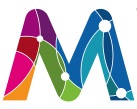(Following is the transcript of my speech at the TUAC Forum at the 2016 OECD Ministerial on the Digital Economy)

Q. Why is access to an open internet important?
Simply put, it is because the open access to the internet is a key to achieving more productivity and equitable distribution of the wealth. Let me explain.
Right now, we are approaching the end of the 3rd industrial revolution and entering into the 4th that is pushed forward by the internet of everything and Artificial Intelligence, AI. Since they interact using something called API, they sometimes are referred to as API Economy.
Like every industrial revolution we had in the past, we will see a sharp rise in productivity associated with a steep drop in the price, Digital Deflation. But it is not a bad thing. Productivity increase means we are going to be richer on average as we can produced more with less, and the drop in price makes it possible to extend the services to the sectors unreached hitherto.
For example, in finance, some companies started offering operational capital loans to small businesses. It became possible because they can now risk profile cheaper and better by gathering data about the business through APIs and processing it by Artificial Intelligence.
More futuristic example would be a case where an engineer in the central location with Virtual Reality equipment gives instruction to engineer on-site real-time to fix machines, using parts 3D printed on-site.
But none of these are possible without the four key priorities that ITAC believes.

Let’s look back to the time of the 1st industrial revolution where we saw unprecedented economic growth. The technology in question was the steam engine and other machineries to automate the textile manufacturing. Europe had an access to the technology so they enjoyed better life, but the people without the access, mainly in India, had to face the starvation. Technology access makes such a difference. And the main technology driver for the fourth industrial revolution is the trusted connectivity through Open Internet and the skill of the people.
It is estimated that half of the global population has no connectivity. This leaves them in the situation similar to the cotton weavers in India during the first industrial revolution.
We have to change it.
We need to give them connections. It need to be open. Otherwise, permissionless innovation will not happen. It has to be safe and trusted from both privacy and security perspectives. Otherwise, people will not use it, and the data will not flow. And, they have to be trained so that they are able to use the technology. So, these four points are extremely important.
Q. What are the challenges regarding the privacy regulations?
There are a few challenges regarding privacy regulations.
- Misconception among industry players that data protection will hinder their business.
- Pervasive surveillance in the name of security.
- Danger of the new regulations being used as a tool for protectionism.
- Negative Externalities and needs for Ethical behaviors.
I have no time to go into details, but I would like to emphasize the importance of OECD principles.

It may seem to be limiting to businesses, but safer trusted environment to the people will give better business environment as well.
Also, promoting ethical behavior by the participants are extremely important. For example, better authentication and more granular control of personal data releases has been available for at least 10 years. But it is far from being universally deployed partly because the cost of not implementing it are borne by individuals and other services just like in the case of pollution. More promotion of the ethical behavior and policy implementation to internalize the cost are needed.
